
In the Peak TV era, anthology series are basically catnip. No longer do you have to follow a plot from week to week, keeping track of complex characters in something like Game of Thrones or labyrinthine mysteries like in Westworld. It’s a new start with every episode! Of course, each of these anthology series, from Black Mirror to Easy, spark debate over which chapters are the best and which can be skipped. That brings us to Amazon’s Philip K. Dick’s Electric Dreams, a ten-episode sci-fi series based on the short stories by the author of Do Androids Dream of Electric Sheep?, A Scanner Darkly, and Minority Report. If you’re wondering how to prioritize these ten hours of television, let us guide the way.
10. “Human Is” (Season 1, Episode 3)
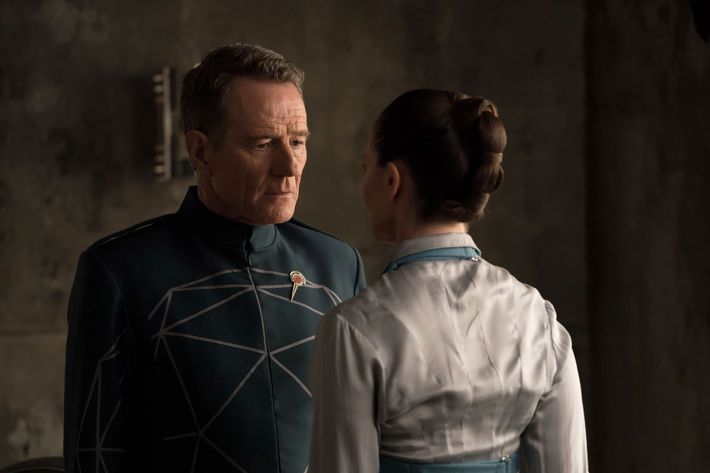
One of the most promising episodes on paper ends up being the weakest episode of Electric Dreams. Series co-producer Bryan Cranston stars as a legendary member of a space military who may be an interstellar hero, but is also kind of an asshole at home to his wife, played by Essie Davis of The Babadook. After a deadly mission, he comes back, well, “changed,” and everyone begins to question if his kindness is a sign that he’s been body-snatched. The trick is that his wife may like this version of him more. This is one of those episodes that might have worked in 30-minute form, but doesn’t have enough material to justify its length, which leads to plodding, morose pacing that’s designed to stretch it to meet a running time. Despite good work by Cranston and Davis, it’s the episode that’s most likely to put you to sleep.
9. “Autofac” (Season 1, Episode 2)
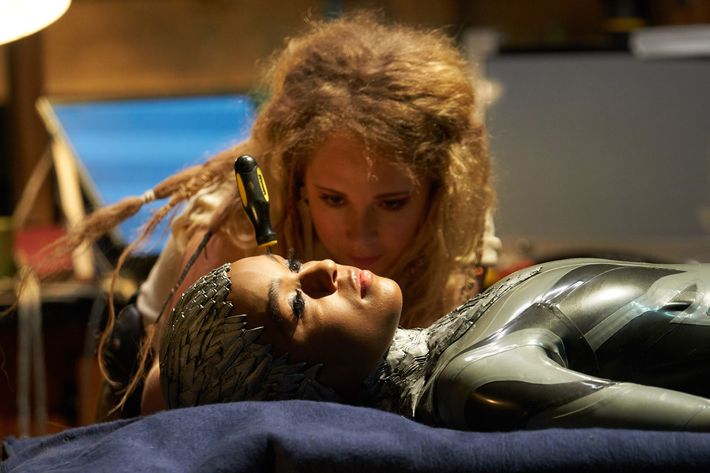
The most striking image to come out of Electric Dreams may be Janelle Monae as a robot, but the episode that includes her character is overcooked from its first frames as a nuclear weapon hits a major city and a young lady watches in shock. It may be depressingly timely, but the story that follows just feels too familiar. Perhaps there has just been too much postapocalyptic fiction over the last few years, but “Autofac” feels stale, even down to the last-minute twist that’s pretty easy to see coming and doesn’t really do much thematically. Monae and Juno Temple are quite good, but that’s all that saves it from being a complete disaster.
8. “The Hood Maker” (Season 1, Episode 5)
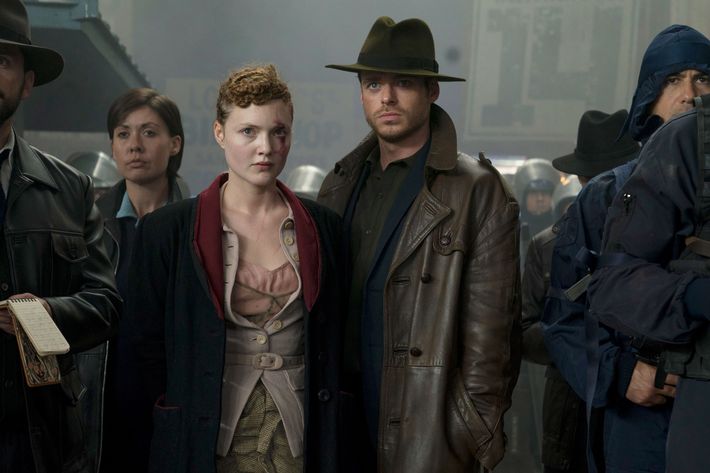
Again, the problems here come down to pacing issues, but “The Hood Maker” also marks the point at which Electric Dreams works more than it doesn’t. It speaks to the overall quality of this show that this episode ranks so low, and yet it can still be recommended. With echoes of Minority Report, Holliday Grainger plays a “teep,” a telepath being used to help stem a revolution. She gets close with a very Deckard-esque detective played by Richard Madden, but their loyalty is tested as the structures of society start to collapse. There are some interesting modern themes here — the right to privacy being a big one — but it takes itself way too seriously and needed to breathe more to really work.
7. “Safe and Sound” (Season 1, Episode 6)
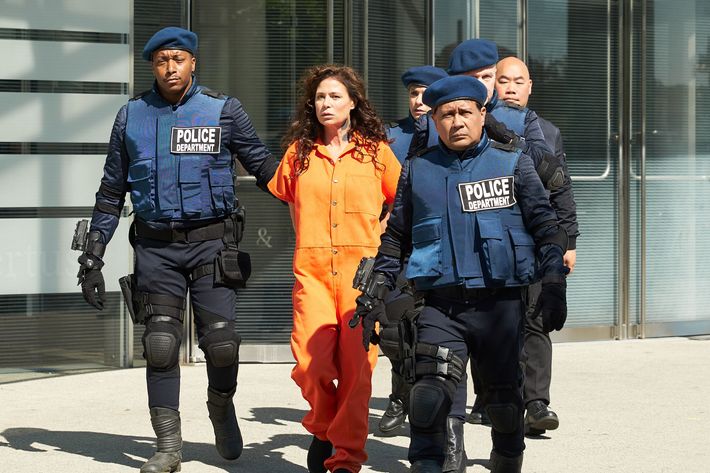
Much like “The Hood Maker,” this one feels timely and starts with a fascinating idea, but gets less effective as it progresses to an overheated ending. Annalise Basso’s performance as a young lady confused about allegiances to her mother’s worldview and that of the teenagers around her is the best thing going for it. This one also has echoes of Black Mirror’s “Arkangel” in the way it captures the danger of being overly safe in an inherently unsafe world, but it’s main message is one of manipulation, and how fear can be weaponized. Even if it’s various themes don’t seem to ever really come together, it’s a solid episode due to Basso’s commitment, at least until the final few minutes of twist revelations.
6. “Impossible Planet” (Season 1, Episode 8)
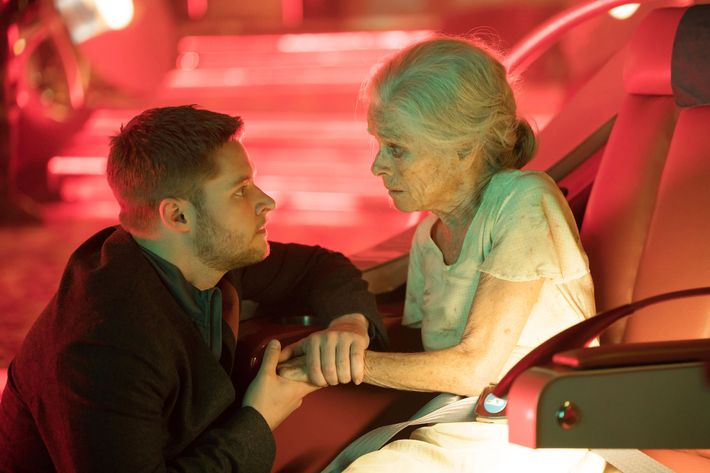
There are a few great performances in Electric Dreams, but Jack Reynor and Geraldine Chaplin’s work in this heartbreaking chapter have to be near the top of the list. Reynor beautifully captures the arc of a man who knows he’s basically a con artist, taking advantage of an old woman’s dreams and memories, whereas Chaplin embodies one of the season’s most poignant and memorable characters. The only reason “Impossible Planet” isn’t ranked higher is because it’s another episode that would have worked better at a half-hour length, but is padded to reach a longer running time. A tighter version could have been an emotional masterpiece, but it’s still worth a look in this looser form.
5. “Crazy Diamond” (Season 1, Episode 4)
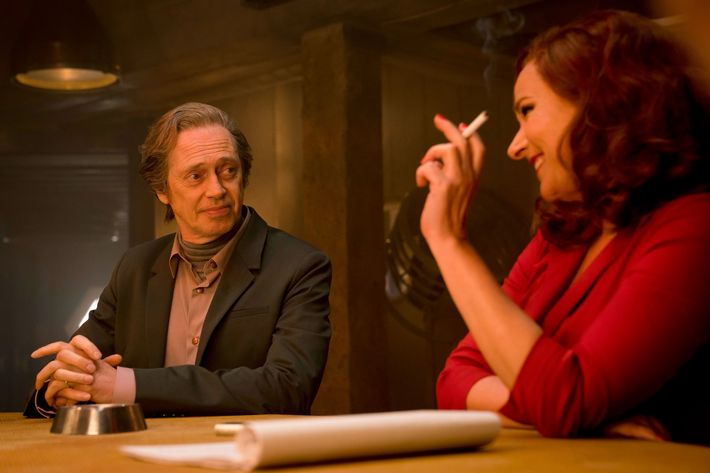
A lot of episodes of Electric Dreams have similar production design and direction, cribbing styles from other Philip K. Dick properties, like Minority Report and Blade Runner, but this hour stands alone in visual terms. It’s stylish and weird, jumping around tonally but never losing its quirky consistency, and it’s refreshing to see an episode that takes such big risks in terms of style. (It’s almost like Wes Anderson directing an episode of Westworld.) The plot, in which Steve Buscemi’s dreamer gets drawn into a noir-esque adventure when a replicant “Jill” convinces him to do so, is secondary to the weird, mesmerizing look of it all. Plus, it’s one of the few episodes that really sticks its landing.
4. “Real Life” (Season 1, Episode 1)
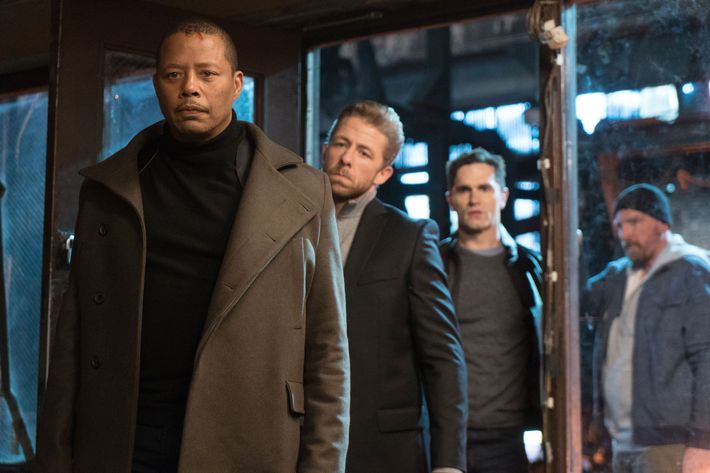
The first episode (at least on Amazon, since the episodes aired in a different order in the U.K. last year), this adaptation of Dick’s “Exhibit Piece” by series co-producer Ronald D. Moore is a perfect tone-setter, letting viewers know what they’re in for. Anna Paquin plays a woman who taps into a virtual-reality noir world starring Terrence Howard … or is it the other way around? “Real Life” playfully questions reality before becoming a heartbreaking commentary on the human willingness to punish ourselves for our own sins, even when others affirm forgiveness. Paquin and Howard are both excellent, setting the bar for the several great performances to come.
3. “Kill All Others” (Season 1, Episode 10)
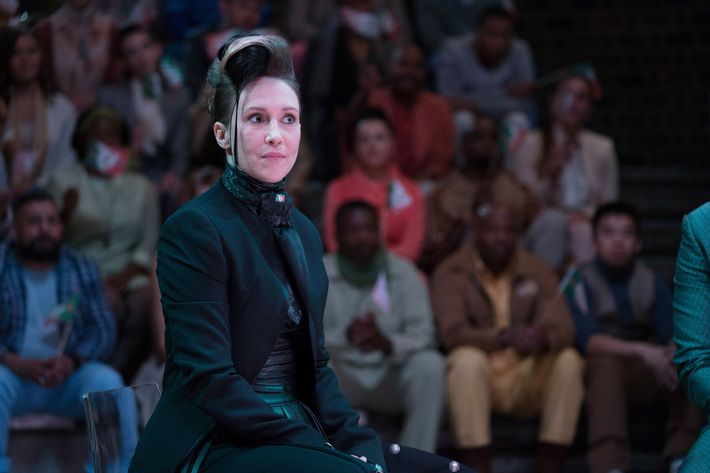
Dee Rees’s season-ender is a remarkably timely hour of television, capturing mob mentality and the way racism becomes more acceptable and dangerous when it’s allowed a platform. Mel Rodriguez memorably conveys that eerie feeling when you think you’re the only sane person in the world, as a political candidate played by a chilling Vera Farmiga encourages people to “kill all others.” Once his co-workers leave him behind, Rodriguez becomes more and more of a target, spiraling to the episode’s tragic ending. It’s telling that Amazon chose this as the final episode of Electric Dreams, granting its closing imagery of a man destroyed by a system even more powerful. The show leaves us here for a reason.
2. “Father Thing” (Season 1, Episode 7)
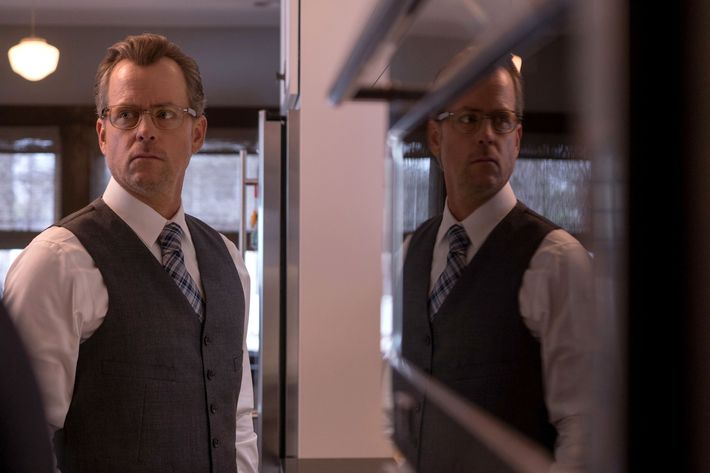
The most purely enjoyable episode of Electric Dreams plays like a cousin of Stranger Things inspired by John Carpenter’s The Thing instead of It and Aliens. The action-adventure tale of a boy who sees his father, played with smarmy malevolence by Greg Kinnear, replaced by an alien is paced for suspense, but the episode really works because of the allegory for divorce that ripples through it. Once you know your parents are no longer going to be together, they don’t quite ever look the same. (Lines like “My father is not my father” are given added resonance with that in mind.) There’s a reason people remake Invasion of the Body Snatchers every generation — it contains a timeless theme of distrust and betrayal by someone who looks like our loved one, but we no longer really know — and “Father Thing” plays those same notes.
1. “The Commuter” (Season 1, Episode 9)
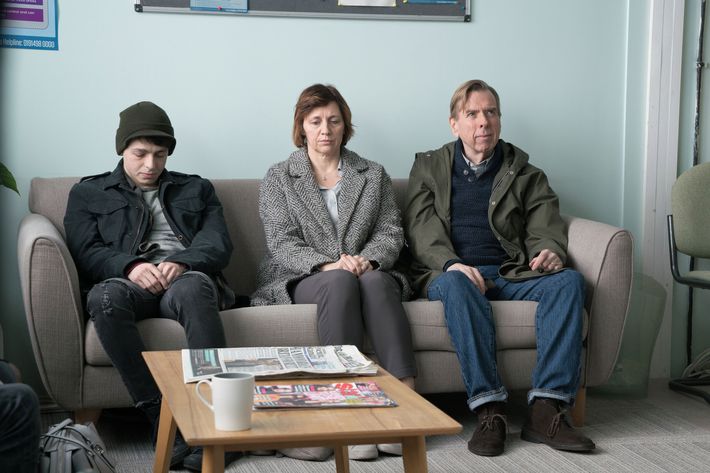
The indisputable masterpiece of Philip K. Dick’s Electric Dreams echoes the granddaddy of all sci-fi anthology series, The Twilight Zone, but charts its own course to a village that isn’t on anyone’s map. Timothy Spall plays a train employee who discovers the magic of a hidden town called Macon Heights in this episode that first feels like a mysterious riff on Groundhog Day, but becomes incredibly moving as its layers are peeled back to reveal a heartbreaking dilemma. What if you knew the future held little more than heartbreak for you and your child? Would you sacrifice a loved one to change it? This is a near-perfect episode of sci-fi television, capturing both the gravity of a specific character’s situation and philosophical questions to which we can all relate. If you only watch one episode of Electric Dreams, pick “The Commuter.”


